#native countries
Text
to any americans who feel "paralyzed" and "dont know what to do" to help with gaza:
reading a fucking book. i beg of you.
in a time of knowledge suppression is it your duty to arm yourself with knowledge.
read about americas occupations in the middle east.
read about 9/11 from outside of america and see how they inflicted senseless harm and violence to countless amounts of people and have been suppressing your rights for the past 2 fucking decades.
read about any of the countless wars from the past 30 years. especially from a civilian's. and the victims and survivors' perspective. listen to the horror stories and do not plug your fucking ears as to what your country is doing.
and read about fucking gaza and palestine and keep up with what is happening no matter how "sad" or "uncountable" you might get.
dont look away from this.
you dont have the right to be comfortable during countless active genocides.
if you're knowledgeable, you're powerful, and our current state doesnt fucking want that.
you have the power to change things if you open your eyes and scream to the world.
wake the fuck up.
Edit: please check the reblogs there are readings and ways to help
#og#truly if youre not about it your against it and i dont fuck with you because you're complacent#wake the fuck up#we're all responsible and dont you dare say you're not#americans need to stop living in the world with their eyes closed and their ears covered#look at what your fucking 'glorious country' is doing to people#everyone should be against america no fucking exceptions because america is violent and evil and needs to be stopped#then read about what america has done to the natives of their land#radicalize yourself#decolonize your mind#free palestine#land back#palestine will be free#theres too many fucking movements of just the past couple years all happening at once to act like the world is fucking fine#we are in a human rights CRISIS#WAKE THE FUCK UP PLEASE
25K notes
·
View notes
Text
Wikipedia editors push offensive language to delegitimize some Native American Tribes
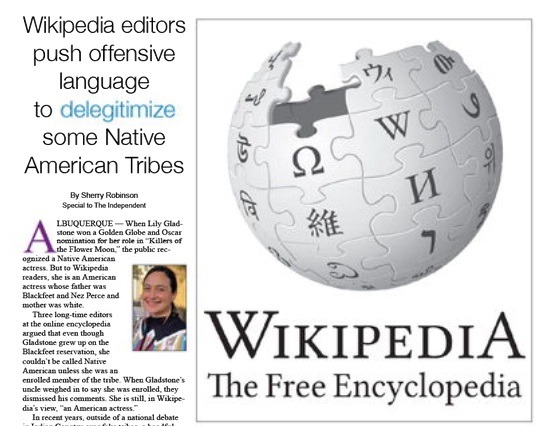

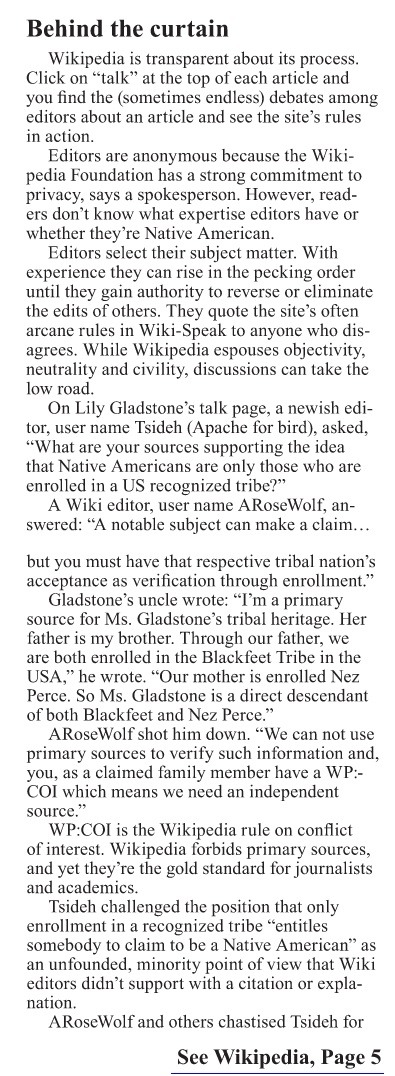



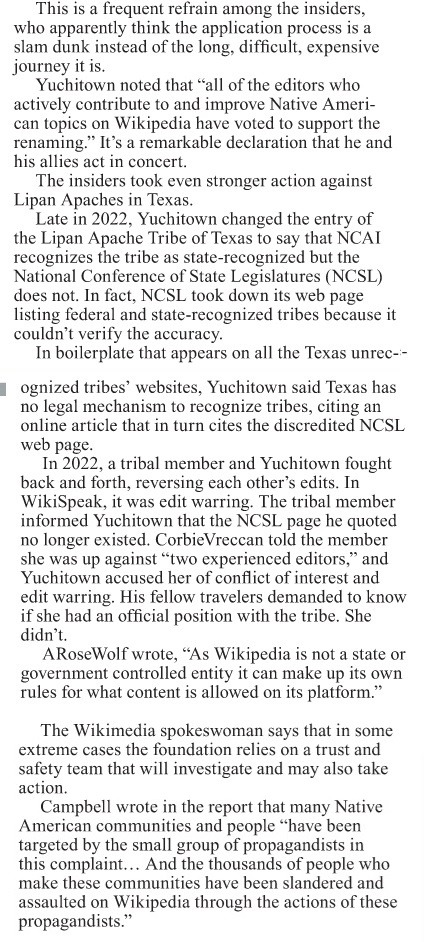
Article Text As Follows:
Wikipedia editors push offensive language to delegitimize some Native American Tribes
By Sherry Robinson
Special to The Independent
ALBUQUERQUE — When Lily Gladstone won a Golden Globe and Oscar nomination for her role in “Killers of the Flower Moon,” the public recognized a Native American actress. But to Wikipedia readers, she is an American actress whose father was Blackfeet and Nez Perce and whose mother was white.
Three long-time editors at the online encyclopedia argued that even though Gladstone grew up on the Blackfeet reservation, she couldn’t be called Native American unless she was an enrolled member of the tribe. When Gladstone’s uncle weighed in to say she was enrolled, they dismissed his comments. She is still, in Wikipedia’s view, “an American actress.”
In recent years, outside of a national debate in Indian Country over fake tribes, a handful of Wikipedia editors have been deciding who is Native American and who isn’t.
Look behind the curtain of the sprawling site and you will find a network of 265,000 volunteer editors writing and editing within a Wiki universe that has its own rules, language, police and courts but no traditional hierarchy.
Wikipedia’s structure allows likeminded editors to work together, but it also permits editors with a bias to advance their agenda. The site has drawn criticism from media and academics for slanted articles on Blacks and Jews. Wikipedia documents its own systemic bias in an article by that name and attributes the problem to too few minority editors. The typical editor, it says, is a white male.
By Wikipedia's definition, the only real tribes are federally recognized; editors of Native American material denigrate state-recognized and unrecognized tribes and seem preoccupied with revealing fake Indians.
The fakes are out there, and they’re a problem. But there’s a big difference between people who invented a Native ancestry and people who have a long, documented heritage.
For this story, aggrieved tribal members didn’t identify themselves because they fear the site’s size and power – it reaches 1.8 billion devices a month – and some editors’ vindictiveness.
Behind the curtain
Wikipedia is transparent about its process. Click on “talk” at the top of each article and you find the (sometimes endless) debates among editors about an article and see the site’s rules in action.
Editors are anonymous because the Wikipedia Foundation has a strong commitment to privacy, says a spokesperson. However, readers don’t know what expertise editors have or whether they’re Native American.
Editors select their subject matter. With experience they can rise in the pecking order until they gain authority to reverse or eliminate the edits of others. They quote the site’s often arcane rules in Wiki-Speak to anyone who disagrees. While Wikipedia espouses objectivity, neutrality and civility, discussions can take the low road.
On Lily Gladstone’s talk page, a newish editor, user name Tsideh (Apache for bird), asked, “What are your sources supporting the idea that Native Americans are only those who are enrolled in a US recognized tribe?”
A Wiki editor, user name ARoseWolf, answered: “A notable subject can make a claim… but you must have that respective tribal nation’s acceptance as verification through enrollment."
Gladstone’s uncle wrote: “I’m a primary source for Ms. Gladstone’s tribal heritage. Her father is my brother. Through our father, we are both enrolled in the Blackfeet Tribe in the USA,” he wrote. “Our mother is enrolled Nez Perce. So Ms. Gladstone is a direct descendant of both Blackfeet and Nez Perce.”
ARoseWolf shot him down. “We can not use primary sources to verify such information and, you, as a claimed family member have a WP:COI which means we need an independent source.”
WP:COI is the Wikipedia rule on confl ict of interest. Wikipedia forbids primary sources, and yet they’re the gold standard for journalists and academics.
Tsideh challenged the position that only enrollment in a recognized tribe “entitles somebody to claim to be a Native American” as an unfounded, minority point of view that Wiki editors didn’t support with a citation or explanation.
ARoseWolf and others chastised Tsideh for violating Wiki rules on bullying, false accusations and arguing Wiki policy. Tsideh countered that Leonardo DiCaprio didn’t have to prove he was an Italian American, but Lily Gladstone had to prove she was a Native American.
As the back and forth continued, ARoseWolf slammed a new editor who "just happened to find this discussion,” a dig that implies one party enlisted another to join the debate. That too is a Wiki violation.
Bohemian Baltimore, another regular, insisted, “If she’s not enrolled, she may be a descendant, but she’s not a Native American.”
Who is Native American?
Terry Campbell, a Navajo born in Tuba City, Arizona, who lives out of state, has been studying Wikipedia for five months, after friends complained about poor treatment in trying to edit Wiki pages.
One friend wanted to add some facts to an article about a tribe. “These changes were rejected by a handful of editors who cited other Wikipedia pages as sources,” he said, “and I thought that was very, very odd.”
A friend citing sources that prove her tribe survived the Indian wars and received state recognition ran up against Wikipedia guidelines on determining Native American identities that were largely crafted by two editors, user names CorbieVreccan and Yuchitown. Wiki editors used the guidelines to reclassify dozens of state-recognized tribes as “heritage organizations” and removed “Native American” from biographies of prominent tribal members or, worse, called them a "self-identified Native American.”
The implication, Campbell explained, is that the tribe no longer exists and that its members are suspect or even “Pretendians.” Wikipedia has a page for that too.
The same group has shaped many articles on Native subjects. Campbell said he combed through references and found they were misrepresented, taken out of context, sourced from far-right academics, or unreliable.
“The scope of this issue is huge,” Campbell said. “It permeates all the Native articles I checked.”
Campbell recognized talking points from what he called a far-right movement in Indian Country intent on erasing state-recognized and unrecognized tribes. (New Mexico has no state-recognized tribes and six unrecognized groups or tribes.)
Some Native Americans and Anglos, he said, believe that Indigenous people outside the circle of federal recognition should be considered non-Native. They also want to prevent members of the disenfranchised groups from selling their art, receiving ancestral remains, accessing disaster relief or re-establishing their homeland.
Outside Indian Country, it’s not generally known that U.S. Indigenous groups live within a caste system based on government recognition, with 574 federally recognized tribes on top, dozens of state-recognized tribes second, and several hundred unrecognized tribes last.
In 2021, Yuchitown wrote, “The overwhelming majority of ‘List of unrecognized tribes in the United States’ are completely illegitimate.”
There are many reasons why groups aren’t recognized. Some avoided the reservation. Some lost their recognition during the termination era. Some were broken up and scattered during the Indian Wars. Some went underground, practicing their culture secretly while passing as Hispanic. Many simply stayed put.
When Wikipedia editors claim that “Native American” is a political status conferred by the U.S. government, that an individual can only be called a “descendent” until their tribe is recognized, they push this narrative, Campbell said. It’s a contradiction of federal Indian law and the United Nations Declaration on the Rights of Indigenous Peoples.
According to the U.S. Department of Justice, “As a general principle, an Indian is a person who is of some degree Indian blood and is recognized as an Indian by a Tribe and/or the United States. No single federal or tribal criterion establishes a person’s identity as an Indian. Government agencies use differing criteria to determine eligibility for programs and services. Tribes also have varying eligibility criteria for membership.”
Extreme points of view
Campbell has contributed to a lengthy report, as yet unpublished, that identifies biased editors. They include Yuchitown, CorbieVreccan, ARoseWolf, Indigenous girl and Bohemian Baltimore.
“It was like a tree with many interconnecting branches that had been created over time by the same small group of people pushing extreme points of view,” Campbell said.
Initially the group made changes slowly, he said, “but they started pursuing their agenda aggressively after November, when state-recognized tribes retained their voting rights in the National Congress of American Indians (NCAI). Essentially, after the movement to delegitimize state-recognized tribes failed officially, the key players doubled down on altering and controlling the flow of information about Native Americans through Wikipedia.”
Campbell observed widespread violations of Wikipedia standards: “I found evidence that they blatantly misquoted and misrepresented sources to push extremist political beliefs; teamed up to manipulate the consensus system by voting in blocks; exploited Wikipedia rules, such as conflict of interest, to block outside editors from making changes to Native-related pages; excessively cited opinion pieces from fringe political figures, including those accused of racism and anti-semitism; blocked the use of legitimate primary and secondary sources that contradict their extremists beliefs, which violates Wikipedia’s rule against information suppression; posted originally researched, politically motivated essays instead of well-sourced articles; and harassed and defamed Native American tribes and living Native American people.”
Reacting in February to an early draft of the report posted on Google, the editors were incensed that anybody would voice complaints “off-Wiki.” ARoseWolf wrote that “we have been attacked, threatened with legal action and had misinformation/ false claims spread against us.” She and Yuchitown denied being part of a conspiracy against tribes or organizations and said they were just following Wiki rules. Yuchitown accused critics of being “meat puppets” of a person who objected to some Native content and enlisted others to back them up. In WikiSpeak this is meat puppetry.
“Volunteers on Wikipedia vigilantly defend against information that does not meet the site’s requirements,” the Wikipedia spokeswoman wrote. “These volunteers regularly review a feed of real-time edits to quickly address problematic changes; bots spot and revert many common forms of negative behavior on the site; and volunteer administrators (trusted Wikipedia volunteers with advanced permissions to protect Wikipedia) further investigate and address negative behavior. When a user repeatedly violates Wikipedia policies, Wikipedia administrators can take disciplinary action and block them from further editing.”
Inaccurate and insulting
In 2006, Wikipedia established the WikiProject Indigenous Peoples of North America to improve its Native-related content of 14,000 articles and more than 37,000 pages.
Recently, a hot topic on the project’s talk page was a proposal to change a category name from “unrecognized tribes” to “organizations that self-identify.”
On April 15 Melissa Harding Ferretti, chairwoman of the Herring Pond Wampanoag Tribe in Massachusetts, wrote, “The proposed renaming of the category on Wikipedia is not only inaccurate… but also insulting.”
Ferretti is one of the few Natives to take on Wiki editors openly.
Herring Pond was originally listed with other Wampanoag tribes. In 2022 Yuchitown stripped “state-recognized” from the page, even though the state Commission of Indian Affairs regularly engages with them. Last year Yuchitown created a separate page for Herring Pond. Wiki editors resisted attempts to make changes or corrections.
After Wikipedia called Herring Pond a “cultural heritage group" and a nonprofi t that "claims" to descend from Wampanoags, Ferretti wrote in a Wiki discussion, “There is no claim, it’s a fact! Might I add, nonprofit status was imposed upon Tribal nations in the ‘90s because we didn’t have our federal recognition yet.”
Her tribe has a well-documented history. “We still have care and custody of our sacred places, burial grounds and our 1838 Meetinghouse, one of three built for the Tribe after the arrival of the colonizers. Our continuous presence and stewardship of these lands are recognized by historical records, deeds and treaties.”
Ferretti wrote that tribes without federal recognition already face significant hurdles to gain recognition, "and being labeled as 'self-identified' can add to these challenges by casting doubt on our legitimacy.” Mislabeling unrecognized tribes “can lead to the spread of hate, misinformation and further marginalization.”
Some Wiki editors agreed. One wrote that “there are strong negative connotations to saying someone who is Native 'self identifies,' because the inference is that they are Native in name only or falsely claiming to be Native. A change like this will impact countless articles…” Bohemian Baltimore, ARoseWolf and Yuchitown insisted there were no negative connotations. They opposed calling an unrecognized group a tribe because it legitimized groups with unverified claims. ARoseWolf said, “If they had proof of their connection to the original people they would have gotten federal recognition.”
This is a frequent refrain among the insiders, who apparently think the application process is a slam dunk instead of the long, difficult, expensive journey it is.
Yuchitown noted that “all of the editors who actively contribute to and improve Native American topics on Wikipedia have voted to support the renaming.” It’s a remarkable declaration that he and his allies act in concert.
The insiders took even stronger action against Lipan Apaches in Texas.
Late in 2022, Yuchitown changed the entry of the Lipan Apache Tribe of Texas to say that NCAI recognizes the tribe as state-recognized but the National Conference of State Legislatures (NCSL) does not. In fact, NCSL took down its web page listing federal and state-recognized tribes because it couldn’t verify the accuracy.
In boilerplate that appears on all the Texas unrecognized tribes’ websites, Yuchitown said Texas has no legal mechanism to recognize tribes, citing an online article that in turn cites the discredited NCSL web page.
In 2022, a tribal member and Yuchitown fought back and forth, reversing each other’s edits. In WikiSpeak, it was edit warring. The tribal member informed Yuchitown that the NCSL page he quoted no longer existed. CorbieVreccan told the member she was up against “two experienced editors,” and Yuchitown accused her of conflict of interest and edit warring. His fellow travelers demanded to know if she had an official position with the tribe. She didn’t.
ARoseWolf wrote, “As Wikipedia is not a state or government-controlled entity it can make up its own rules for what content is allowed on its platform.”
The Wikimedia spokeswoman says that in some extreme cases the foundation relies on a trust and safety team that will investigate and may also take action.
Campbell wrote in the report that many Native American communities and people “have been targeted by the small group of propagandists in this complaint… And the thousands of people who make these communities have been slandered and assaulted on Wikipedia through the actions of these propagandists.”
Link to the original article:
4K notes
·
View notes
Text
To anyone interested in learning about Artsakh, its history and the struggle of Artsakhi Armenians for freedom and self determination, I suggest checking out Learn For Artsakh initiative (@/learn4artsakh on Instagram).They share a lot of information on these topics and spotlight the interconnection of violence inflicted on the indigenous groups in the region by the colonizing powers.
They also have an e-library with free pdfs of many books written by Armenians about Artsakh as well as literature about DR Congo, Sudan, Palestine and other nations experiencing genocide (scroll down to the "Libraries Against Genocide" section).
#armenia#artsakh#gonna tag other countries/nations that have books and articles about them in the library too#palestine#sudan#dr congo#kashmir#tigray#circassian#assyrian#ezidi#yezidi#native american#first nations#they also add books to it so i suggest checking it from time to time to see if anything's new there#hopefully someone will find this useful
437 notes
·
View notes
Text


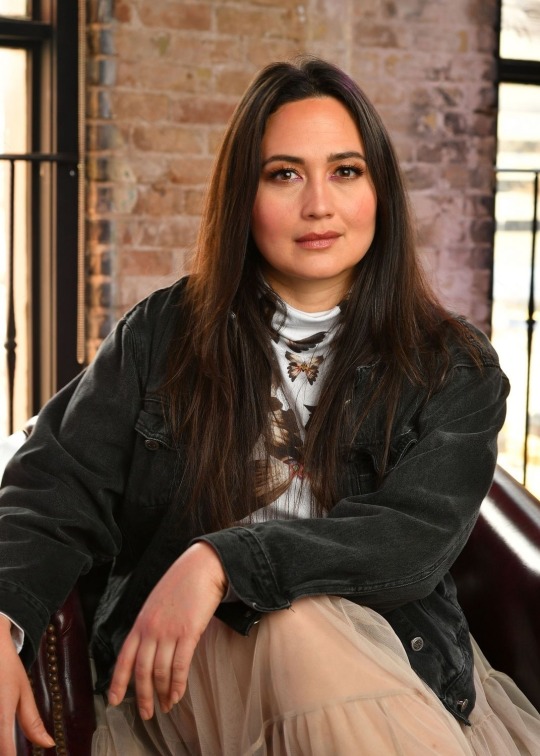


Throwback to a portrait session during promotion for The Unknown Country. Austin, Texas. 13th March 2022.
#lily gladstone#women in film#lgbtq#native american#photography#beautiful women#portrait#the unknown country#movies#queer#beauty#wlw#big d energy
369 notes
·
View notes
Text
listen i love and grow and appreciate native plants as much as any plant ecology nerd but good god the energy of a lot of native plant discussion on social media continues to be so............ much
#like got a comment a few weeks ago on work facebook on baptisia saying 'and it's native to this country!!'#which is so... idk the energy of that is off#people comparing the nectar of non-native flowers to candy with no nutrition#people bashing no mow may because it's not doing enough and lawns are invasive#assigning moral worth to plants#etc etc#that garlic mustard's not evil karen it's a plant
1K notes
·
View notes
Text
fuck it. fantasy old western au where zoro is a bounty hunter chasing down outlaws & pisses off the wrong sheriff at a saloon (axe hand morgan). he’s sent to the stocks, hours from dying from heat exhaustion under the hot desert sun, when young upstart monkey d luffy (in search of a stockpile of hidden gold that infamous outlaw gol d roger hid in the mountains) enters the scene guns literally a blazing
#zolu#one piece#I’m in arizona rn on a trip and I’m feeling inspired lmaoooooo#the outlaws are still themed like buggy still wears clown make up just vintage styled#nami is a bartender who swindles unsuspecting drunks. dreams of mapping the country and going to the west coast#sanji cooks in an abandoned train that zeff converted into a restaurant but he dreams of accessing spices and veg he can’t get in the deser#usopp lives in a mining town and kayas parents own the mine#there’s a bit of magic nothing as crazy as the devil fruit powers but there’s ghosts who roam#Native American mythos heavily influences the lore#monsters are real (the sheriffs are supposed to protect the town)#I could go on but I won’t lol
633 notes
·
View notes
Text
Please reblog for a bigger sample size!
If you have curiosities or facts about Canada you'd like to share, tell us and we'll reblog it!
#canada#country polls#polls#i debated myself on whether to add genocide here#so if you are native canadian and thinks this triviliazes it/shouldn't be in the poll#please contact me and i will delete it#if you're canadian but not indigenous i dont think you have a say here#north america
296 notes
·
View notes
Text

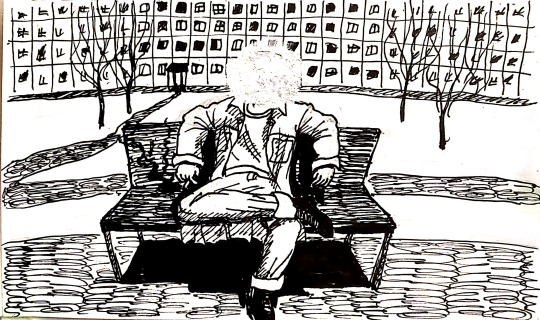
1:
"if i had stayed a monster… maybe that would be better. right?"
2:
a fine november evening. numb dissociation
#john kayano#john milgram#mikoto kayano#mikoto milgram#only john is there but yeah#milgram#milgram fanart#1: that pic is mirroring the moment from meme#and referencing john's phrase from neoplasm#2: you may not be familiar with that kind of landscape#that's khrushchyovka The Most depressing living space out there#native to my country#we reference that a lot#me arts
305 notes
·
View notes
Text
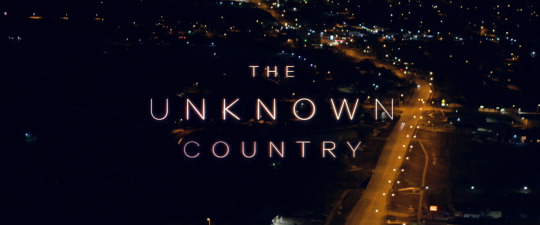
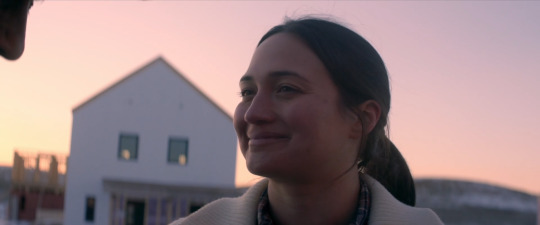


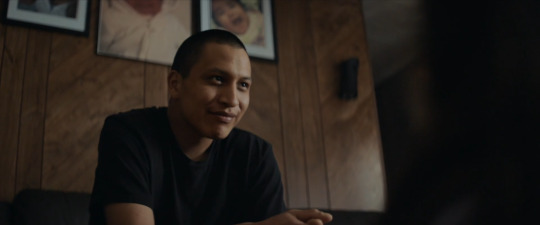

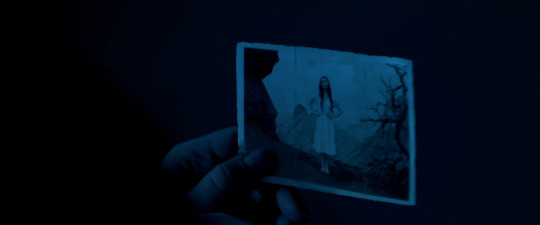
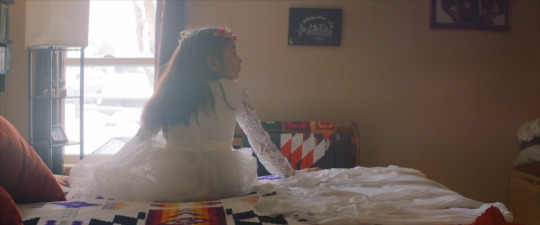
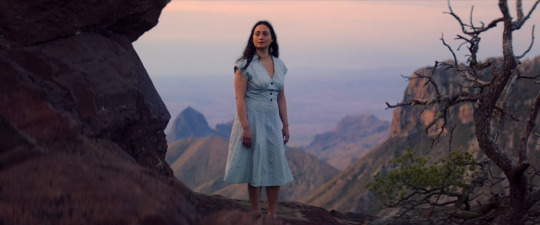


The Unknown Country (Morrisa Maltz, 2022)
#lily gladstone#the unknown country#morrisa maltz#native american#indigineous people#female filmmakers#female directors#female directed films#women in film#female screenwriters#indigenous
209 notes
·
View notes
Text
the continuous focus on birds and birdsong in monstrous regiment is one of my fave bits just because we know the only reason polly has all that background knowledge is bc of paul. and even when she has that moment of not wanting to admit that she wants to get paul back partially for selfish reasons she was still the person in his life that paid attention enough to remember everything he loved/knew about birds lol. he's not really haunting the narrative he's just kind of chilling back there but ANYWAY lol polly perks could do antigone
#whenever theyre in a new location polly is always letting some bird info into her description of the setting and its just bc of paul#monstrous regiment#like. that's her brother. the birdsong footnote is funny but thats her BROTHER and she cared enough to be able to identify birds from a#great distance that weren't even native to their country so um that's thee manifestation of weird sibling bonds#the line about the colored pencils is soooo crazy. someone got him some colored pencils and she will love them 4ever#discworld#polly perks#gnu terry pratchett#paul perks#im so tired post diwali workday is killing me but im playing the events of mr behind my eyelids during meetings
195 notes
·
View notes
Text
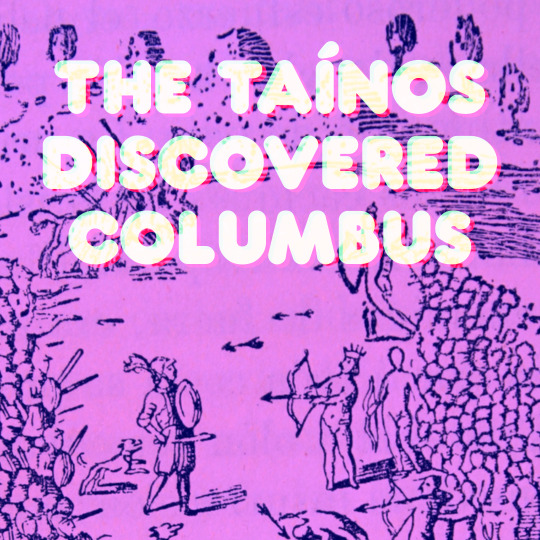
On October 12, 1492, Columbus arrived on the shores of the Caribbean, the now-called Bahamas, and the Taíno people welcomed him and his crew with respect and great care. Their kindness was repaid with vicious cruelty and enslavement.
The horrors of genocide left no one untouched on Turtle Island and Abya Yala, but the Taínos were the first to encounter this scourge. There aren't enough people who call them by name and claim a ubiquitous "indigenous peoples" encountered Columbus.
Know and name the Taíno and the ways they suffered as a result of First Contact.
And also the ways they have persisted and survived to this day. Check out the United Confederation of Taíno People (UCTP) / Confederación Unida De El Pueblo Taíno (CUPT) as a place to start.

The Taino peoples are not a monolith and include many different tribes and areas.
Image 1: Cristobal Colón, 1893 "La gran batalla que tuvo el almirante con el Rey Guarionex y cien mil indios en la Vega Real" | Wikipedia
Image 2: "Distribución de los arahuacos taínos, caribes y guanahatabeyes en las Antillas, en el tiempo de la llegada de los españoles." | Wikipedia
#indigenous peoples day#indigenous history#taino#tainos#taino culture#indigenous erasure#christopher columbus#caribbean indigenous#fuck columbus#1492#ndn tumblr#ndn tag#ndn country#ndn#native american#first nations#turtle island#abya yala#indigenous people#indigenous
2K notes
·
View notes
Text

horseshoe crab!!
#i love them and i want to see one but they arent native to my country BOO ;___; ...#horseshoecrab#horseshoe crab#lesbian artist
147 notes
·
View notes
Text








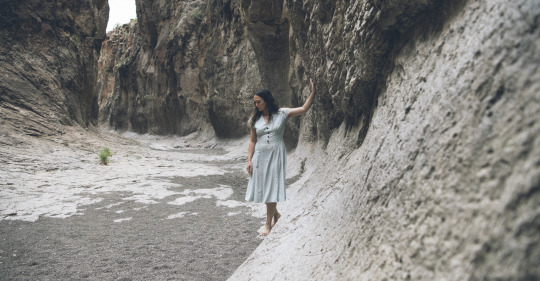

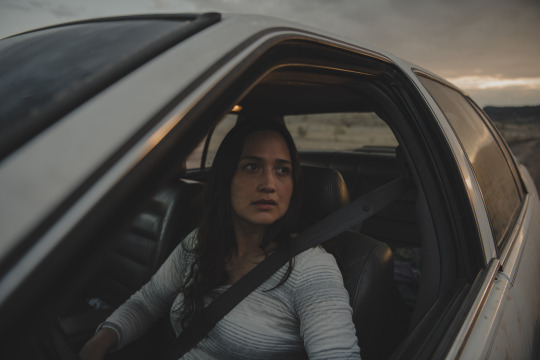




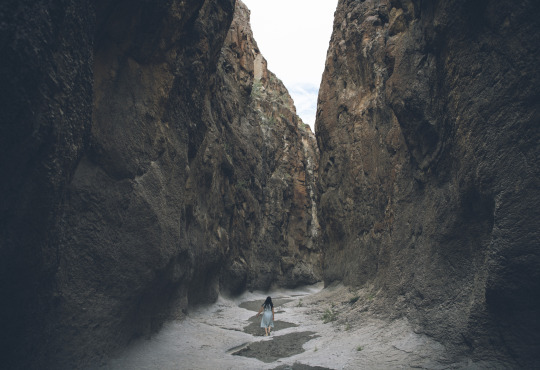
A beautiful photoshoot by Will Graham. Lily Gladstone for The Unknown Country.
#lily gladstone#lgbtq#women in film#actress#native american#photography#photoshoot#the unknown country#film#wlw#beautiful women#portrait#sillohoutte#mountains#landscape#nature photography
161 notes
·
View notes
Text

Source: Christopher Douglas
865 notes
·
View notes
Text
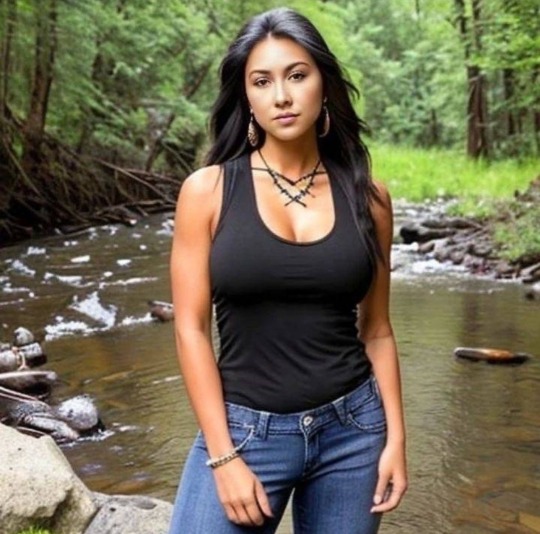
186 notes
·
View notes
Text
Don't make fun of any accents, ever, for any reason.
The person on the receiving end will most likely fall in at least one of three categories:
Second language
Regional accent
Speech impediment
1. Second language
This person is probably speaking in this language to you because either you don't speak their mother tongue or you speak it worse than they speak the language you are speaking. They are making an effort for you. An accent doesn't make you dumb.
Making fun of someone for attempting to communicate in another language is the height of assholery.
2. Regional accent
Half the time you make fun of regional accents, you make fun of historically disenfranchised accents.
Southern accents? Congrats you're making fun of the way rural, usually poor, people speak. Their speech was highly influenced by black people.
Don't even get me started on making fun of AAE.
Again, an accent doesn't make you any less intelligent.
3. Speech impediment
They know they have a speech impediment. They are probably trying very hard not to sound like that. It is literally not their fault. They have had to deal with people making fun of it their whole life.
A speech impediment doesn't make you less intelligent either.
#submission#manners#good manners#etiquette#politeness#courtesy#nationalism and xenophobia plays a pretty big role in the first one too#In the country I live in a lot of the nationalism and xenophobia specifically centers around language#For foreigners it's a lose / lose situation#If they speak the local language then locals will be rude to them for having an accent#But if they don't use the local language (since most locals born here are actually pretty multi-lingual) they get yelled at#and generally treated like garbage#@ nationalistic people in the country I live in: please choose#Either be patient and kind to people with an accent#or be willing to use English or Spanish or other languages#you can't just yell at foreigners who speak to you at all either with an accent or in a different language#and get mad that they just don't appear here with perfect native speaking abilities
58 notes
·
View notes